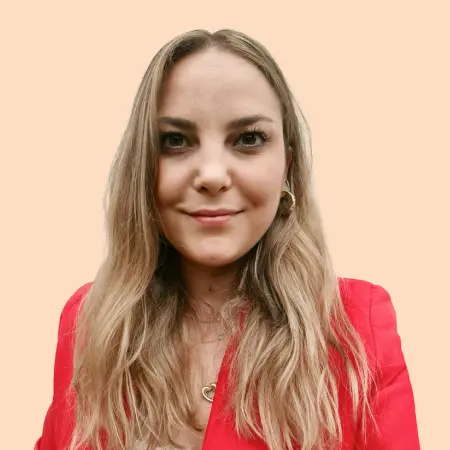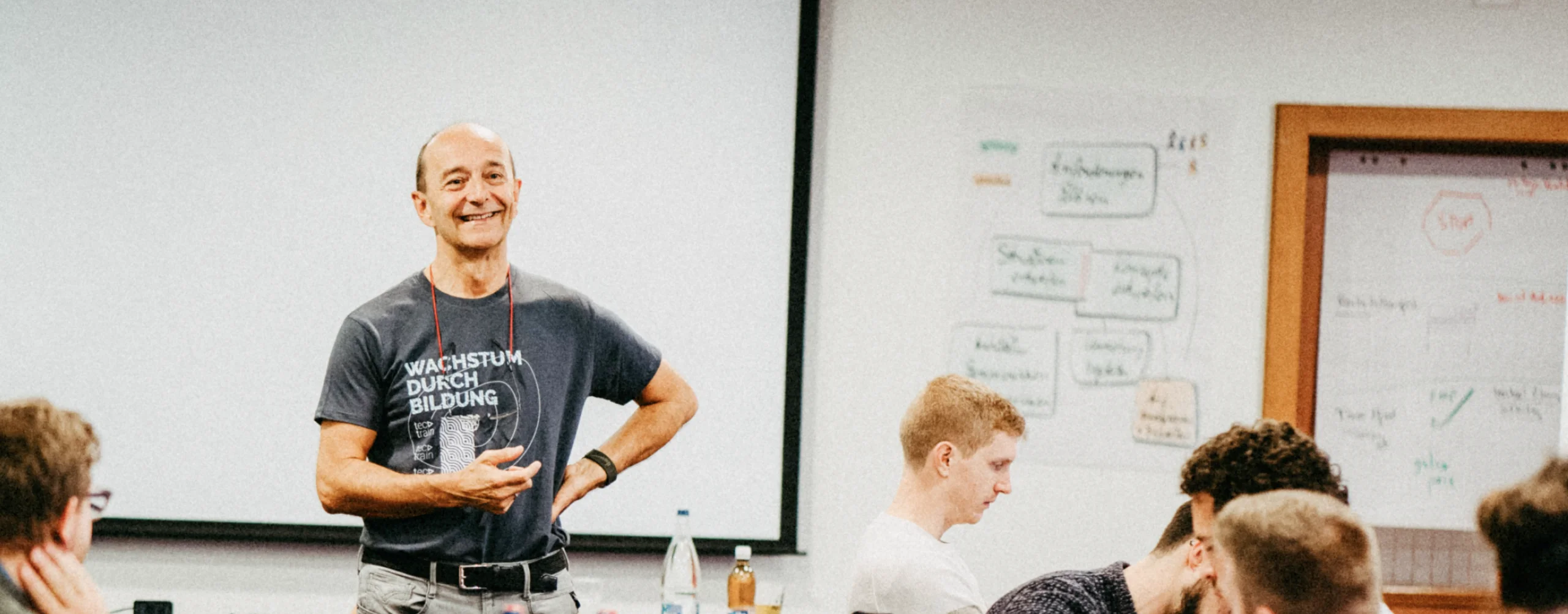Certifications often raise more questions than they answer, especially in architecture roles where experience is everything. Is iSAQB worth dedicating time on? Just another checkbox? What actually does set you apart after achieving certification?
At tecnovy, we’ve heard all of these questions, and we wanted answers not based on theory but on actual experience. That’s why we set out our iSAQB Podcast Project because we wanted firsthand interviews with actual professionals who've undergone certification themselves.
We talked to:
Stephan Schlatter
Senior Software Engineer & Software Architect
Helbling Technik AG
Read the Interview Transcript
Tobias Ammann
Business Lead Stream Technology Services & Senior Software Architect
Bedag Informatique SA
Read the Interview TranscriptEach participant answered the same core questions about their iSAQB experience. In this article, we share their full answers, side by side, with a short tecnovy summary before each question to give context.
Whether you’re considering the certification or trying to figure out how it fits into your career, this guide is for you.
1. Is iSAQB certification really worth the time and money?
It’s a fair question, one that pops up regularly on Reddit, in team meetings, and even in tech Slack groups. Is this just another training event with a badge tacked on at the end, or does it actually provide any value at all?
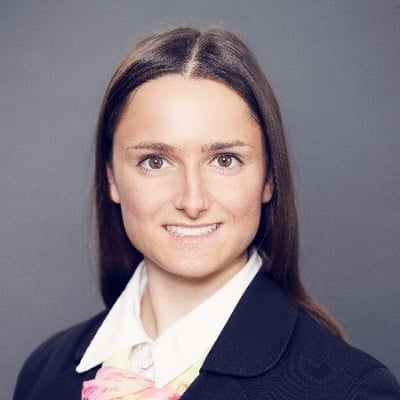
No training is a waste of money and time, I think. This is my personal opinion. But the iSAQB is special in the way that it is very well architectured. I mean, it's made by software architects. They know what you're doing, trust me.
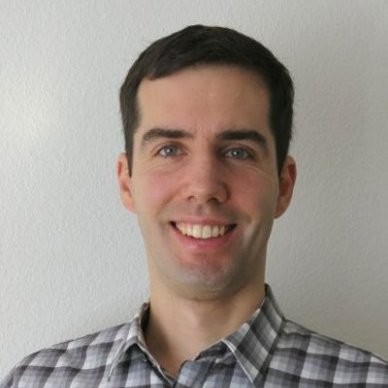
I would say it's worth the investment. The structure of the certification gives you real feedback, and you get something back for your time.

The certification brings structure into your architectural thinking. That alone makes it worth it.

If you're serious about growing in this field, the certification helps you benchmark yourself against real architectural standards.

Definitely worth it. You invest time, but it gives back much more in clarity and structure.

It helped sharpen my architectural thinking. The structure is demanding but not random, it’s built with real depth.

No, SW-Architecting has many facets and skills. iSAQB establishes a base-line of know-how and practices.
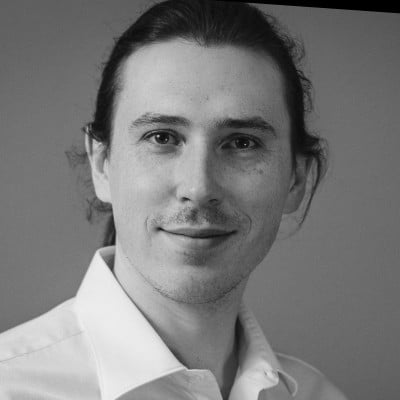
The program makes you step back and look at the big picture. You suddenly realize what you’ve been missing in daily project life.
2. Is iSAQB certification just a nice-to-have or truly necessary for architects?
In software architecture, roles and responsibilities vary widely across teams and industries. For these reasons, many wonder: Is iSAQB actually necessary for me or simply a useful addition?
During our interviews for our podcast series, we noticed a pattern: while no one described the certification as a necessity, there were many who singled out the certification as a valuable step toward becoming more competent, more effective, and more prominent on their projects.

Even if you are experienced, there are so many courses that you could take. I'm absolutely sure there is no one who knows details about each and every of them.

It’s not mandatory, but if you want to grow into a real architectural role and be able to defend your decisions, something like iSAQB gives you structure.

Nobody hands you the job of an architect. You have to prove it. This certification is one way to show you’ve earned it. [...] It’s a solid way to communicate that you care about quality and structure, not just delivering code.

You can be a senior developer without it, sure. But if you want to lead architecture in a structured way, it really helps.
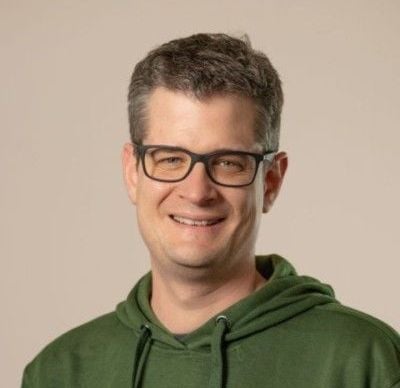
It’s not mandatory, but it raises the bar. You notice the difference between architects who’ve trained and those who haven’t.

You can learn on the job, sure. But this formal path pushes you to reflect. That’s hard to do when you’re deep in delivery mode.

ISAQB certification is not necessary. If you have little to no experience as a SW-Architect, it is a very good start. Plus it is helpful to showcase your knowledge.

Without this certification, I might have missed blind spots in my architectural thinking. It gave structure to things I already sensed but never formalized.
None of the architects said iSAQB is the only way, but all agree it provides a clear, structured, and valuable path for anyone who wants to sharpen their mindset and be recognized for it.
Each answer reflects a different phase in an individual's professional life but all lead ultimately back to the same fundamental value proposition: iSAQB clarifies. It identifies what software architecture is, why certain decisions are critical, and how to communicate them to others. If you begin there or start from there, the certification gives your work language, structure, and legitimacy.
Is it really a necessity?
It's goal dependent. But if you aim to grow further in your role, lead with confidence, and get aligned with people who work in the field, it’s more than just a “nice-to-have.”
3. What real-world skills do you gain from the iSAQB program?
What makes the iSAQB program different from a pile of books on architecture or online tutorials?
One of the most common misunderstandings about architecture certifications is that they’re purely theoretical. But across all our interviews, we heard something different:iSAQB builds a skillset that translates directly into project decisions, documentation practices, and how architects lead technical conversations.

I actually had to redo it, by the way. I didn't manage to do it perfectly in the first time, but this was also really good learning. Because if they have, for example, given me just the feedback, yeah, it's looking good, no problem, you're in, it wouldn't be the same learning effect. And I enjoyed the learning effect really well, because they have pointed me details that I didn't see.

You understand better what tradeoffs you have to make and how to discuss them with your team. You develop a better structure for analyzing complex systems and putting things in context.

What helped me most was learning how to handle trade-offs in architectural decisions and how to justify them clearly in front of others.

The biggest skill I gained was writing architectural documentation that others can actually understand and use. That changed the way I work in teams.

I now feel more confident explaining architecture to different stakeholders and defending my choices based on real principles, not just gut feeling.

The exercises helped me go from high-level ideas to implementation detail and made me more conscious about how to communicate my architectural rationale.

I didn’t have the possibility to closely work with other SW-Architects, so the courses showed me what a SW-Architect has to keep track of and why (Especially the why is important, a SW-Architect needs to understand when tasks can be postponed or ignored and which are needed for a good SW-Architecture)

Before, I struggled with breaking down complex systems. Now, I feel more confident in separating concerns and prioritizing what matters most.
The iSAQB program isn’t just about academic learning, it gives professionals a way to sharpen their decision-making, documentation, and critical thinking in real-world conditions. Participants repeatedly mention that it helped them surface blind spots and build stronger architectural habits they now rely on in their day-to-day work.
4. How theoretical or practical is the iSAQB curriculum?

So the part where you go to trainings and you listen to someone and then you do a bit of exercise is more like... 70% theory and 30% practice. It is still more practical than just listening to some videos on YouTube and not doing anything, but the real practice comes when you go for the advanced certification. And you have to do this project at the end, because there you have to apply all the theory you have learned, plus, you have to read yourself a lot, you have to search, you have to develop your own methodology, tactics on how to document all that's in your head. And this is 100% practice.

The foundation is more theoretical, yes. But the advanced level project puts you in a situation where you need to solve a real problem from start to finish. It’s much more than just writing an exam.

You get the theory in the trainings, but the final project forces you to apply everything. You don’t just learn the concepts, you use them.

It’s structured in a way that gives you theory first, but you need to build a full architecture afterward. You have to make decisions, justify them, document them. That’s real work.

In the trainings, you learn to navigate both theory and practice. The real practical value came through in the project work, this is where everything clicks.

In my experience iSAQB provides the theory and the trainers provide the practical side. (In the foundation level, the trainer told us what is important for the certification test and what his experience in real world projects is)

It is a great mix. The base is theory, but you’re constantly working on exercises that require real thought and application.

It was more practical than I expected. The trainers often challenge your answers and force you to back up your design decisions with arguments.
So if you are wondering whether iSAQB is “too theoretical,” the answer will vary based on how far you are through the program. But by program's end, if done in its entirety, there is no debate about its applicability.
Featured resources:
What is iSAQB CPSA-A Certificate & How to get it?
5. How long does it take to prepare for and pass the iSAQB exams?
One of the first questions people ask is how long it takes to complete iSAQB, especially the Advanced Level. We wanted to understand how much time and energy professionals really spent preparing and whether it was manageable alongside their jobs.

For the foundation, I only needed the training week and a little bit of review. The advanced level took much longer. I spent several weeks working in the evenings. It was like taking on a small freelance project.

I worked on the final project over about two months, evenings and weekends. It takes time—not just to write, but to think things through properly.

It’s a serious commitment. I had to plan for it like I would for any complex delivery. You can’t just squeeze it into your week, you need to carve out time.

The first for the foundation certification was a theoretical exam, for which I didn't prepare more than just take the foundation training. And the second one, with the practical project, it took a lot of time. I won't lie to you. Is like a second job activity for a few months, you really have to want to do it.

You need several months if you’re doing it alongside a full-time job. I underestimated how long the project would take. It’s not impossible, but it needs discipline and clear time planning.

It’s doable in parallel to work, but you have to pace yourself. The deeper you go, the more time you need.

The trainings are short and intense. But the certification project really stretches you. I worked on it over several months in sprints.

I took a 4 day course (not at tecnovy) that included the foundation level exam as part of the course.
Most participants took the Foundation Level with minimal prep beyond the course itself. However, the Advanced Level project was consistently described as time-consuming and demanding. It’s not something to rush, those who succeeded planned for several months and treated it like a second job. But with motivation and structure, they all managed to balance it with work life.
The preparation timeline isn’t fixed, but those who approached it with seriousness and treated it like a real architecture job reported the most personal growth.
6. How can you choose the right training provider for iSAQB?
The iSAQB curriculum is standardized, but the learning experience can vary a lot depending on who trains you. So we asked participants: What made their training providers stand out and what should others look for when choosing one?

All my trainers were people who took part in real world projects and who could answer questions about, okay, how does this look in reality? The things that you're telling me, the things that you are showing me in theory, and those people could answer these questions. It is not just theory, but it's the chance to see the people who have lived the theory in their projects and ask them questions and do exercises with them.

The quality of the trainers was very high. They didn’t just read from slides, they told stories from their own projects. That made the difference.

What I valued was the openness and flexibility. You could really ask anything and they often challenged your thinking in a good way.

I would recommend checking if the trainers are close to real projects. Not necessarily active today, but they should have been in the field enough to make theory practical.

I picked a training where the instructor had worked in the industry. That made a huge difference. The examples weren’t just slides, they were from real projects.

Some trainers just present the content, others bring it to life. I was lucky to have someone who had real war stories from the field.

Choose someone who doesn’t just explain concepts, but also questions you. The training should feel like a conversation, not just a lecture.
What’s the takeaway? It’s not about the brand, the format, or whether it’s onsite or remote. The real differentiator is whether the provider creates an environment where trainers bring experience, encourage questions, and give honest, applicable feedback.
So, before choosing a provider, ask:
-
Do the trainers have solid, hands-on experience in real architecture projects?
-
Are they able to connect theory to project realities, whether through current roles or past, in-depth experience?
-
Is there room to discuss your own challenges?
-
Do you get structured feedback and time to reflect?
A good provider will make you feel less like a student, more like a peer stepping into a deeper conversation about architecture.
7. What’s the most noticeable change in your work after getting certified?
Beyond the certificate itself, what actually changes in day-to-day work?
We asked participants to reflect on how the iSAQB experience affected their thinking, approach, and how others in the team perceive their role.

I approach meetings and planning with more confidence now. I feel like I can justify my design decisions clearly, not just technically but strategically.

Next time I'm asked to do an architecture, I know which are the most important points. [...] I got really valuable feedback from the people who revised my work. [...] They have pointed me details that I didn't see. And this is the actual gem of the architecture work. You're supposed to dig and dig and dig until you reach places you didn't think about in the beginning.

Before, I was mostly focused on solving problems fast. After the certification, I started thinking more in terms of system impact and long-term consequences.

After the certification, I started paying much more attention to the why behind architectural decisions. Not just what we do, but why we do it and making that visible to the team.

After the certification and advanced level courses I was more confident in my SW-Architecture knowledge. (If you “just” read a book, it’s sometimes hard to know if it’s content is just a nice theory or if the concepts are being used and have proven useful).

My colleagues noticed the shift. I was able to justify decisions better, argue more clearly, and contribute to architecture reviews with a new level of structure and clarity.

It gave me a structured mindset. I no longer just fix things, I plan them with architecture in mind.

The biggest change? I now write better documentation and I understand its importance. Before, I underestimated how much it affects long-term project quality.
The most visible changes happen not only in architecture outputs but in how these professionals think, argue, document, and communicate. The certification helped sharpen the “why” behind their technical work and gave them new tools to express it in ways that resonate with both developers and stakeholders.
Across the board, the certification would seem to encourage a more reflective, deliberate mindset, making technical decisions not in isolation, but in the context of long-term system needs, business goals, and team communication.
The result?
More confidence in one’s own role, and more trust from other people.
8. Does iSAQB help you communicate better with stakeholders and developers?
Architecture is not just about systems, it’s about people. We wanted to know if iSAQB helped our participants navigate communication, especially with teams, product owners, and business stakeholders.

The training really helped me translate complex architecture into something my team and stakeholders can actually use. I got better at simplifying things without losing meaning.

I used to go deep into technical terms, and that confused stakeholders. Now I tailor my message depending on who I’m speaking to. That’s something I learned directly through the iSAQB process.

Considering all this and putting it into your architecture requires a lot of knowledge, methodology and communication skills, and all of these are part of the iSAQB certification. [...] You need skills in all those areas to excel well as a software architect.

iSAQB helped me explain architecture decisions in a more structured way, especially to people who don’t have a technical background. I used to jump into technical terms too fast, now I start with the 'why' and work down.

The most useful part was understanding how to involve stakeholders and how to document quality attributes in a way that makes sense for both technical and non-technical people.

Yes, because of the training I could explain “why” certain tasks are important and I knew which issues I should push forwards.

I used to struggle with explaining decisions to product owners. Now I have a common language to make architecture understandable to non-developers.

It made me more aware of the soft skills I had ignored before. Knowing the technical side is one thing, but now I feel more prepared to bridge gaps between developers and business.
All participants agree that communication isn’t a side skill in software architecture, it’s central.
The iSAQB framework helped them build the vocabulary and confidence to make technical topics accessible and to align better with everyone involved in a project.
This ability to connect technical depth with human understanding,across different functions, might be one of the iSAQB program’s most underappreciated strengths.
9. Are online comments about iSAQB being a “money trap” actually true?
If you’ve ever browsed Reddit threads or developer forums, you’ve probably come across claims like “iSAQB is just another cash grab.” We brought this concern directly to the people who completed it and asked for their honest take.

Yes, it's an investment, but I never felt like it was a trap. You actually have to do the work. It’s not just about paying to pass.

No training is a waste of money and time, I think. [...] The iSAQB is special in the way that it is very well architectured.

The program makes you step back and look at the big picture. You suddenly realize what you’ve been missing in daily project life.

If you just want a piece of paper, you won’t get much out of it. But if you treat it seriously, it absolutely gives value. The project phase alone taught me things I never got from books.

It’s not cheap, but it’s not a scam. It’s a structured way to test and expand your skills. You get what you put into it.

Definitely worth it. You invest time, but it gives back much more in clarity and structure.

The certifications provide a way to show that you have the specific SW-Architecture knowledge.

The structure is demanding but not random, it’s built with real depth.
None of the architects we interviewed felt that the certification was a waste of money or time. On the contrary, most emphasized the long-term return: more structure in their thinking, deeper communication with teams, and confidence in complex decisions. The “money trap” label simply didn’t reflect their reality.
10. Would you recommend iSAQB to experienced architects?
This is a question we were especially curious about. Is iSAQB still useful if you’ve already spent years in the field? Or is it just for those starting out? We asked experienced professionals directly, would they recommend it to peers who already hold architectural roles?

Even if you are experienced, there are so many courses that you could take. I'm absolutely sure there is no one who knows details about each and every of them. Also, even if you are experienced, there are constantly new topics coming in where you can specialize yourself.

It’s a good reflection tool. You formalize what you already sensed. I would recommend it even to those with experience, as it forces you to question how and why you make decisions.

Even if you’ve been working for a long time, going through the process forces you to reflect on your decisions and document your thinking clearly. That’s valuable at any level.

It helps experienced developers structure what they already know and often find gaps they didn’t realize they had.

There’s always room to learn. Even for senior people, the certification is a way to align with best practices and get peer-level feedback.

It depends, if someone has been working as a SW-Architect for multiple years at the same company and in the same kinds of projects, the certification can broaden their horizon to aspects of SW-Architecture that were not part of in those projects.

I think even experienced architects would benefit, especially from the feedback process during the advanced level project. It’s not just about learning new things, but about sharpening what you already do.

There’s always more to learn. Even as a lead, I found gaps in how I approach things. The iSAQB structure helped me fill those.
Experience doesn’t cancel out the value of iSAQB, it deepens it. All of the professionals we spoke to agree: even seasoned architects walk away with sharper tools, new ways of thinking, and better habits. The certification doesn’t just teach, it challenges and validates, no matter your seniority.
iSAQB Podcast: Insights from 8 Interviews
- Why iSAQB?
Participants view the certification as a way to validate their skills and bring structure to the knowledge they already have. - Practical Use Cases
All report that they think more clearly, communicate more effectively and make architectural decisions in a more structured way. - Learning Model
Theory and practice go hand in hand, mistakes are part of the process, and feedback is a fixed part of the training. - Career Relevance
iSAQB isn’t mandatory, but it can be a helpful tool for anyone who wants to approach software architecture with intention and responsibility.
Want to hear the full podcast where professionals talk about iSAQB?
You’ll find the Spotify player below, just click on the list to see all episodes.


.jpg)
